Femia > Health Library > Pregnancy > Pregnancy week by week > Reaching week 16: Baby’s development, your changing belly, and health tips
Reaching week 16: Baby’s development, your changing belly, and health tips
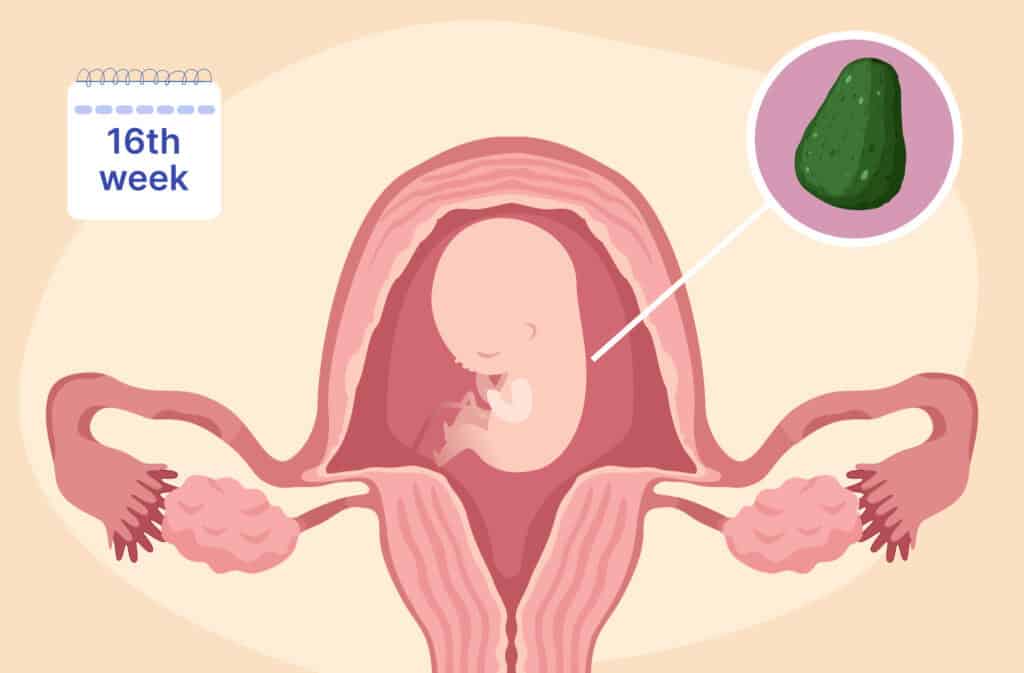
- Updated Feb 27, 2025
- Published
CRAFTED BY HUMAN
Crafted by human At Femia, we provide accurate and up-to-date information at every stage of your journey, from trying to conceive, pregnancy and postnatal support. All content is created by a real person based on in-depth research and own professional experience. Femia ensures that you will receive expert advice, strict accuracy and a personalized approach from our authors/medical experts. Learn more about our editorial policy.
FACT CHECKED
Fact checked At Femia Health, we maintain the highest standards of editorial excellence in delivering content focused on helping you conceive, guiding you through pregnancy, and supporting you postpartum. Explore our content review principles to learn how we ensure the accuracy and quality of our health and lifestyle tips for every stage of your journey.
At 16 weeks pregnant, your baby’s bones are strengthening, and they’re becoming more active with tiny movements. You may start noticing a more visible bump, along with increased energy as your body continues to adapt to pregnancy.
At 16 weeks pregnant, you’re well into your second trimester, a phase often characterized by increased energy and a more noticeable bump. You might also find that your appetite has increased, and some early symptoms, like nausea, have subsided. Here’s everything you need to know about week 16, from fetal development to self-care tips and ultrasound insights.
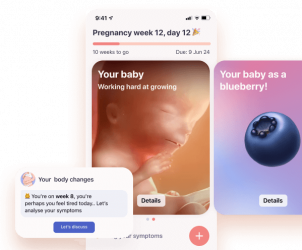
Pregnancy symptoms at 16-weeks
At this stage, many symptoms are related to your growing bump and body changes. Here are the most common symptoms at 16 weeks:
Round ligament pain
As your uterus expands to accommodate your growing baby, the ligaments supporting it stretch and thicken, which can result in a sharp, stabbing pain on one or both sides of your abdomen. This round ligament pain usually comes on quickly and can be alleviated by resting. If the pain persists after rest, or if it’s accompanied by other concerning symptoms, contact your healthcare provider.
Gas and bloating
Progesterone causes your digestive muscles to relax, which can slow digestion and lead to excess gas and bloating. To relieve this discomfort, try eating smaller meals more frequently and avoid carbonated drinks and sorbitol, an artificial sweetener. Gentle movement, like a walk, can help get your digestive system back on track.
Back pain
Pregnancy-related back pain is common as your uterus grows and puts additional strain on your lower back. Hormonal changes also loosen the ligaments that support your spine, contributing to discomfort. Strengthening exercises, such as prenatal yoga and walking, can help ease back pain, as can a pregnancy massage or a gentle massage from a partner.
Breast changes
Your breasts undergo numerous changes during pregnancy, including tenderness, swollen veins, and changes in the areolas. Some women may also notice lumps or bumps, which are typically harmless but should be monitored. If you find any hard lumps or have concerns, it’s always a good idea to consult with your provider for reassurance.
Forgetfulness
Many women report feeling forgetful during pregnancy, a phenomenon sometimes referred to as “pregnancy brain.” This may be due to a combination of hormonal changes, fatigue, and the added mental load of preparing for a baby. To help stay organized, simplify your routine and use reminders on your phone to keep track of tasks.
Pregnancy headaches
Headaches are common during pregnancy, often triggered by hormonal shifts, dehydration, stress, or changes in sleep patterns. However, if you experience a particularly severe headache, especially in the second or third trimester, it could be a sign of preeclampsia. Always consult your healthcare provider if you experience a new or intense headache.
Your body at 16 weeks pregnant
At 16 weeks, your baby is growing quickly, and your body is adjusting to accommodate the changes. Your uterus is expanding, and you may notice a small bump below your belly button as your pregnancy becomes more visible. This is a time of rapid physical change, as your body shifts to support your growing baby, and you may begin to feel more energetic as early pregnancy symptoms, such as nausea, start to fade.
Along with the physical changes, you might experience some mild discomfort, such as round ligament pain. This pain is caused by the ligaments stretching to support your expanding uterus, and it can feel like sharp or dull aches in your lower abdomen. Many women also report an increase in appetite at this stage, which is your body’s way of meeting the increased nutritional needs of both you and your baby. It’s a good time to prioritize healthy eating, staying hydrated, and incorporating light exercise into your routine to support overall health.
16-week pregnant belly
By 16 weeks, your belly may be noticeably rounder as your uterus expands upward. This is often when first-time moms start to show, while those who have been pregnant before might notice an even more defined bump. Embrace these physical changes as your body adapts to accommodate your baby’s growth.
Baby development at 16 weeks
At 16 weeks, your baby is beginning to look more like a tiny human, with developing muscles and bones that allow for increased movement. They are now capable of small facial expressions, and their taste buds are forming, allowing them to begin experiencing flavors through the amniotic fluid.
Baby's delicate skin
At this stage, your baby’s skin is still very thin and translucent. It will gradually thicken and become more opaque as the weeks go by, but it will remain quite delicate for a while longer.
Scalp development
Your baby’s scalp is now forming distinct hair follicles, setting the foundation for their hair growth pattern. This pattern, once established, will stay with them for life, as no new hair follicles are created after birth.
Heart in action
Your baby’s heart is working hard, pumping approximately 25 quarts of blood daily. This circulation will continue to increase as your baby grows and develops, supporting the rapidly expanding body.
16-week baby size
The 16-week fetus size is about 4.5 inches long, approximately the size of an avocado, and weighs around 3.5 ounces. This week is a growth spurt, as their body and bones continue to strengthen, making them more active.
16-week ultrasound
A 16-week ultrasound may reveal a detailed view of your baby’s developing features, including tiny fingers, toes, and facial details. During a 16-week ultrasound 3D scan, you might even see your baby make small movements or expressions. Some providers may be able to identify your baby’s gender if they’re positioned clearly, although it can vary depending on the clarity of the ultrasound. Typically, an ultrasound is performed a bit later on in the pregnancy, between 18-22 weeks, called a fetal anatomy ultrasound. This is done to examine all the baby’s major organs. This also includes a check for the baby’s sex.
Real-life 16-week fetus
A real-life 16-week fetus is growing fast, with well-formed limbs, fingers, and toes. Although their skin is still translucent, the baby’s body is becoming more proportionate, and they’re practicing movements essential for development.

16 weeks pregnant: Mid-trimester checkpoint
- Maternal Serum Alpha-Fetoprotein (MSAFP): This test screens for neural tube defects like spina bifida.
- Quadruple marker screening: A follow-up to earlier tests, it assesses hormone levels and proteins related to fetal development. While this test is available from 15-21 weeks, it has largely been replaced by maternal blood test cell-free fetal DNA screening, called noninvasive prenatal screening (NIPT). This NIPT also includes the baby’s sex.
👉Find out more:
17 weeks pregnant: Baby’s growth, position & belly changes
Exploring week 18: What’s happening with baby and your changing body
Health tips and self-care at 16 weeks pregnant
- Stay active with light exercise. Engaging in moderate activities like walking, swimming, or prenatal yoga can improve your circulation, reduce pregnancy discomfort, and boost your mood. Aim for at least 30 minutes of exercise most days of the week, but listen to your body and rest when needed. Always consult with your healthcare provider before starting any new exercise routine.
- Maintain balanced nutrition. During this stage, your appetite may increase, and it’s important to fuel your body with a variety of nutrient-rich foods. Focus on a balanced diet with lean proteins, whole grains, healthy fats, and plenty of fruits and vegetables to support both your health and your baby’s growth. Don’t forget to take your prenatal vitamins to ensure you’re getting the essential nutrients for both you and your baby.
- Manage round ligament pain. As your baby and uterus grow, you may experience round ligament pain, which can cause sharp, stabbing sensations on the sides of your abdomen. To ease discomfort, change positions slowly, rest, and try using a heating pad or a warm bath. If the pain persists or is severe, speak with your healthcare provider for advice.
- Stay hydrated. Drinking enough water is essential for maintaining good health during pregnancy. Adequate hydration supports digestion, prevents swelling, and keeps your energy levels up. Aim to drink at least 8–10 glasses of water a day, and increase your intake if you’re active or it’s a hot day.
- Get enough rest. Although you may feel more energetic now, your body is still doing a lot of work. Prioritize rest and aim for 7-9 hours of sleep each night. If you struggle with sleep, try using pillows for support, or practice relaxation techniques like deep breathing or gentle stretching before bed.
Questions from the Femia community
Is craving non-food items normal?
Craving non-food items, known as pica, can sometimes happen during pregnancy. If you experience these cravings, talk to your healthcare provider, as it could indicate a nutritional deficiency.
What are my sports limitations at week 16?
Avoid high-impact or strenuous activities, contact sports, and exercises that involve lying flat on your back for prolonged periods. Focus on low-impact, safe movements.
Why do I feel round ligament pain?
As your uterus grows, it stretches the ligaments that support it, causing mild aches known as round ligament pain. Staying hydrated, moving slowly, and light stretching can help.
Is it okay not to feel anything at 16 weeks?
Yes, it’s completely normal not to feel any movement at 16 weeks, as many women don't feel their baby move until closer to 18–20 weeks, especially for first-time pregnancies. Every pregnancy is different, so some may take a little longer to feel those first flutters. If you're concerned, always reach out to your healthcare provider.
Is it normal to have sensitive gums?
Yes, hormonal changes can cause sensitive or swollen gums during pregnancy. Some may also slightly increase minor bleeding gums at this time. Gentle brushing and regular dental checkups can help manage this. Also, it is 100% safe to have dental cleanings and dental x-rays throughout the pregnancy.
The bottom line
At 16 weeks pregnant, your baby is growing quickly and developing important reflexes, with features becoming more defined. You may feel more energized and see a noticeable bump as your body continues to adapt. Focus on balanced nutrition, hydration, and light exercise to support both you and your baby during this exciting phase of pregnancy.
References
- “16 Weeks Pregnant: Symptoms, Baby Development & Tips.” BabyCenter, www.babycenter.com/pregnancy/week-by-week/16-weeks-pregnant.
- “Week 16 of Pregnancy: Symptoms, Baby Development & More.” What to Expect, www.whattoexpect.com/pregnancy/week-by-week/week-16.aspx.
- “16 Weeks Pregnant: Baby Development, Symptoms & Tips.” NHS, www.nhs.uk/pregnancy/week-by-week/1-to-12/16-weeks/.
- “Pregnancy Week 16: What to Expect.” American Pregnancy Association, www.americanpregnancy.org/healthy-pregnancy/week-by-week/16-weeks-pregnant/.
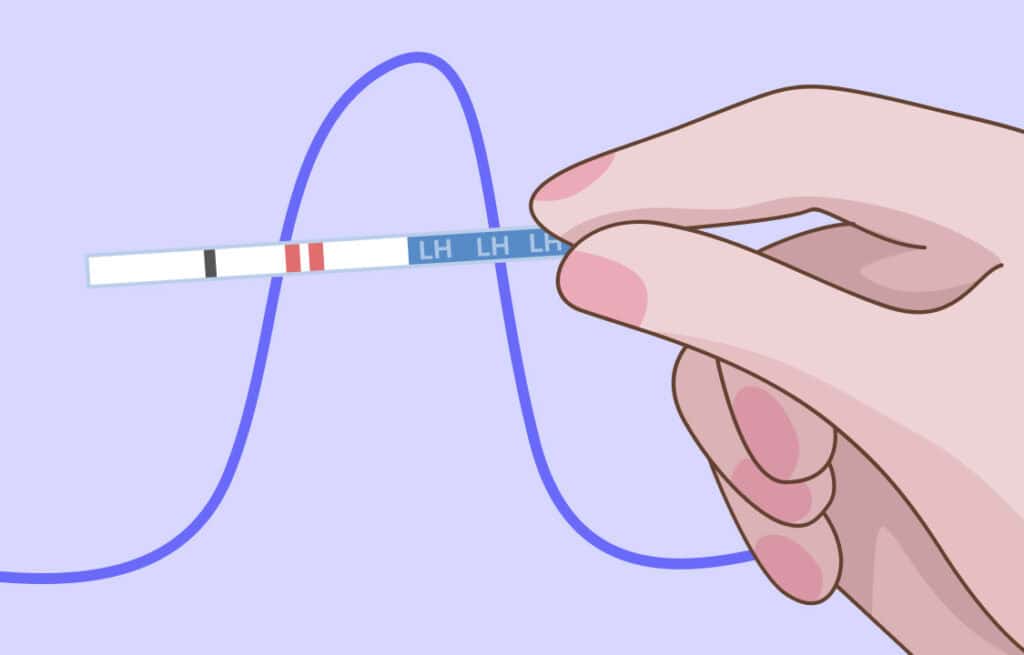
Discover if an ovulation test can detect pregnancy, why you might get a faint positive, and answers to common questions about using ovulation tests during pregnancy.
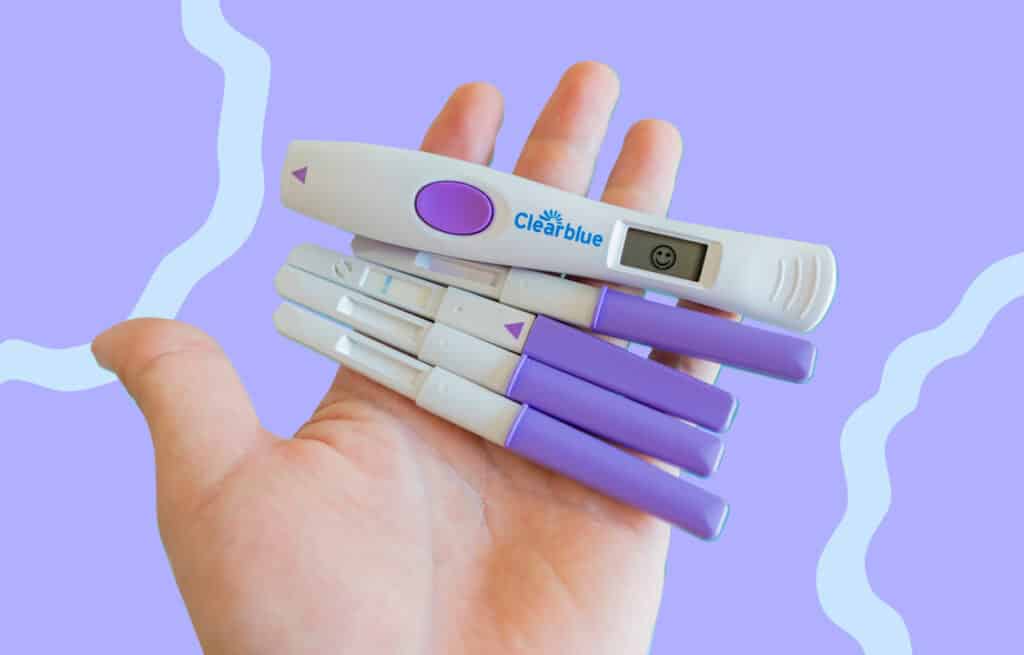
Learn what ovulation means, how it happens, signs ovulation is over, and how to track ovulation for pregnancy planning.
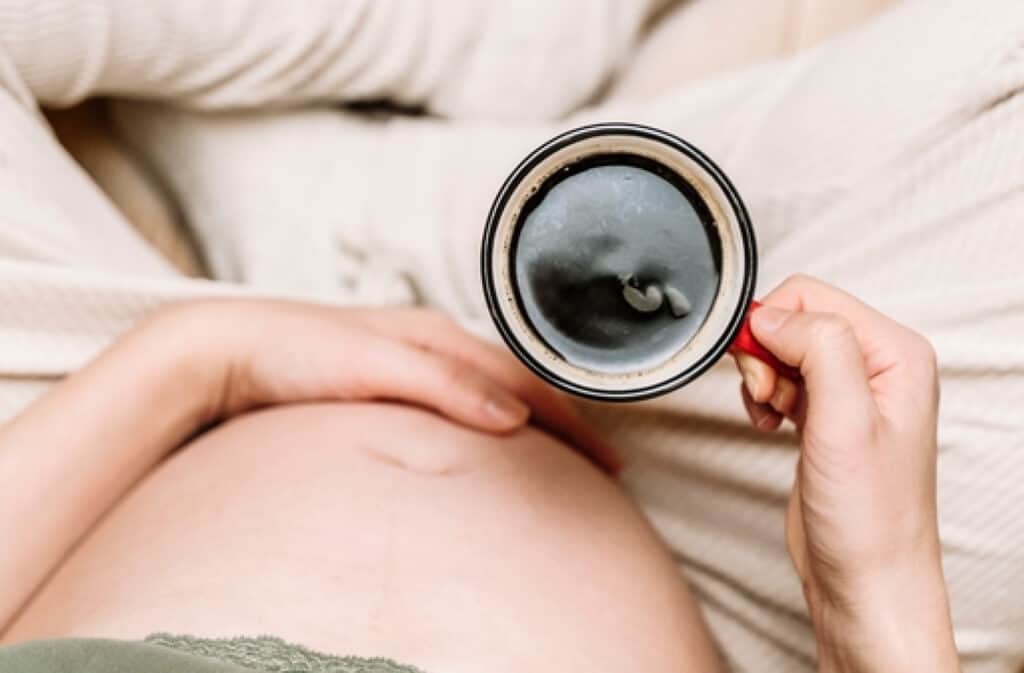
If you’re wondering, ‘Can you drink coffee while pregnant?’ you’ll be relieved to hear that it’s considered safe to consume moderate amounts of caffeine while pregnant.

